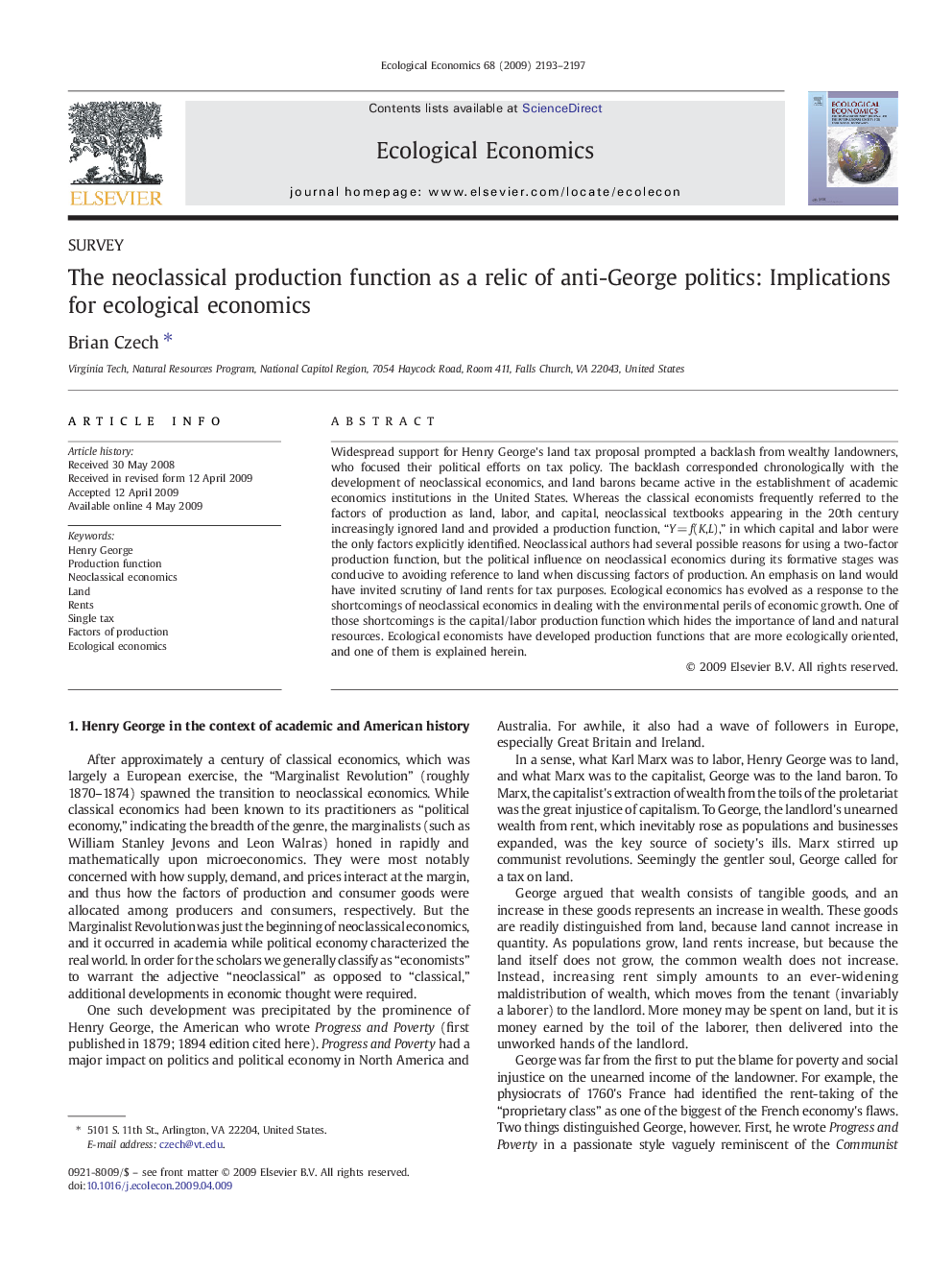| Article ID | Journal | Published Year | Pages | File Type |
|---|---|---|---|---|
| 5051017 | Ecological Economics | 2009 | 5 Pages |
Abstract
Widespread support for Henry George's land tax proposal prompted a backlash from wealthy landowners, who focused their political efforts on tax policy. The backlash corresponded chronologically with the development of neoclassical economics, and land barons became active in the establishment of academic economics institutions in the United States. Whereas the classical economists frequently referred to the factors of production as land, labor, and capital, neoclassical textbooks appearing in the 20th century increasingly ignored land and provided a production function, “YÂ =Â f(K,L),” in which capital and labor were the only factors explicitly identified. Neoclassical authors had several possible reasons for using a two-factor production function, but the political influence on neoclassical economics during its formative stages was conducive to avoiding reference to land when discussing factors of production. An emphasis on land would have invited scrutiny of land rents for tax purposes. Ecological economics has evolved as a response to the shortcomings of neoclassical economics in dealing with the environmental perils of economic growth. One of those shortcomings is the capital/labor production function which hides the importance of land and natural resources. Ecological economists have developed production functions that are more ecologically oriented, and one of them is explained herein.
Related Topics
Life Sciences
Agricultural and Biological Sciences
Ecology, Evolution, Behavior and Systematics
Authors
Brian Czech,
